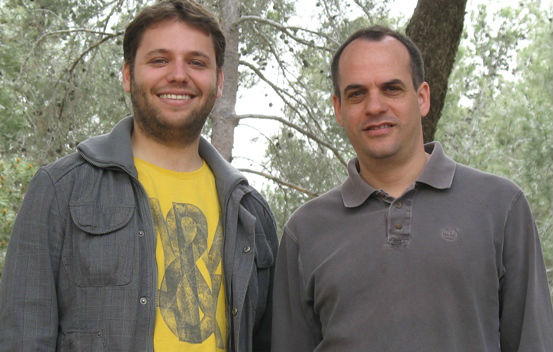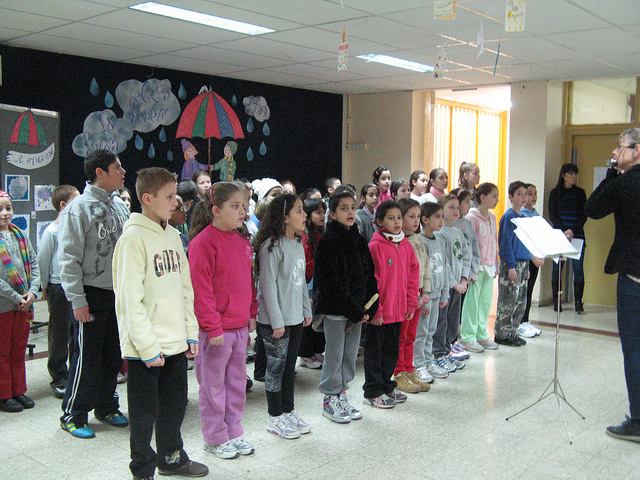Many of us look towards technology for future improvements in the treatment of a host of diseases and ailments. But technology isn’t always an easy answer; sometimes it does more harm than good.
Like using computers to help autistic kids interact. “Kids are attracted to technology, and computers and devices like iPads can appear to help draw autistic kids out of their shell,” says Haifa University Professor Tamar Weiss, one of the world’s leading experts on the use of technology in autism research. “But sometimes that attraction is not a good thing. Kids with autism ignore social interactions, so they often feel very comfortable with computers, because using them is a singular activity. They can sit with an iPad for a whole day and never look up even once.” The trick, Weiss told The Times of Israel, is to figure out ways to use the attraction of technology to help autistic kids become more social.
Weiss was speaking during a recent International Autism Conference, held in Jerusalem, and sponsored by the Icare4Autism organization, which initiates and funds research working towards treating autism. Among the topics discussed at the two-day conference were the genetic basis for autism, working with preschoolers and grade school children, developing work opportunities for adult victims of autism, medical issues and treatments for individuals with autism — and ways technology could be used to help autism victims. Speakers hailed from around the world, including the U.S., Europe, South America, Singapore, the Philippines, and other countries.
Weiss, of Haifa University’s Dept. of Occupational Therapy, collaborates with teams in Israel (at Haifa and Bar-Ilan universities), Italy, and the UK to develop methods to harness the power of technology to help autism victims. One of the hallmarks of autism is impaired social interaction and communication, a pattern of behavior that becomes evident early on among those suffering from the disease, and continuing throughout life. Researchers say that early behavioral or cognitive intervention can help autistic children gain self-care, social, and communication skills; and technology, Weiss believes, can help autistic kids become more socially interactive, impacting the pattern of isolation and providing them with cues and signals they can use to develop relationships with others.
But just putting an autistic kid in front of an iPad or PC won’t do; the trick is to develop methods of using technology that encourage, even require, interaction with others. And Weiss, along with members of her team, has been developing games and puzzles to do just that. The basic model for these interactive activities was developed by a team at the University of Trento in Italy, using a touch-screen table developed by Mitsubishi.
Massimo Zancanaro of the University of Trento, one of the researchers who worked on that project, appeared at the Conference with Weiss, and told The Times of Israel that “the activities we designed for use with the Diamond Touch table are perfectly designed to encourage interaction. Tasks such as solving puzzles, which require a team, are presented. A puzzle that needs to be assembled by two children will require the kids to add pieces in turn, disabling the possibility of one kid doing all the work, since it recognizes the finger pressure and gestures of each person touching the table. Thus, in order to complete the task, the kids are forced to interact.”
The same cooperation/interaction principle can work with games, virtual storytelling, or even schoolwork, Zancanaro said, and the research group has developed a series of activities using this strategy for high-functioning autistic kids, as well as for children with less well-developed social skills. “The system encourages physical interaction, but also helps kids understand that they can play different roles in a relationship, a key understanding that can help them cope with unfamiliar situations, which is very difficult for those suffering from autism.”
With the introduction of the iPad, said Weiss, touch-screen technology is available to everyone. “We have done several studies, including one recently completed that was funded by the European Union, which showed a marked improvement in participants’ interactive skills.” Because the study was small, Weiss hesitates to draw general conclusions from it, but she hopes that the positive results in the most recent study will prompt a bigger grant from the EU or the United States, allowing an expansion of the study to include more kids, she said.
“We did try to go beyond game and puzzle skills in the studies, but we could not fully examine whether the kids will be able to transfer the skills they learn using our technology to other areas of their lives, interacting more in school or on the playground,” said Weiss. “We believe we have seen signs that there is indeed such a transference, but we will be able to draw conclusions only with a bigger study.”
Eventually, Weiss and Zancanaro expect that their research, and the specific activities they develop, will be released for the benefit of the public. “We are a research group, and even if we produce software we do not have the resources to distribute it,” said Zancanaro. “Instead, we foresee a distribution agreement for specific products with a commercial firm, as well as a general release of the research and technology for use by anyone who would like to develop activities or products. We are also looking at cloud-based distribution to leverage costs of distribution. But this is all in the future,” he added.
Meanwhile, the team is working on perfecting its technology and software. “We are developing this not as a ‘top-down’ project,” said Weiss. “We are trying to involve parents, educators, and even victims of autism in the design of these activities. We believe this is an important method of finding what activities and strategies are most effective.” The team is using this input to work on the next generation of their interactivity technology. “We plan to expand this technology to pervasive, always-on devices’ like smartphones,” said Weiss. “An app, for example, could prompt users on appropriate behavior in social situations, helping to reinforce the interactivity skills they have already learned, and not get flustered in the wake of new and unfamiliar social situations, as happens to many autistic individuals.”
According to experts, autism rates in many parts of the world have jumped dramatically; since 1978, for example, rates in the U.S. have risen by more than 600%. Part of that can be explained by better diagnosis, said Weiss, but there is clearly something more going on. “As it happens, there is a prevalence of autism among people employed in high-tech industries,” Weiss said. A study at Cambridge University, for example, said that a higher-than-average percentage of children born to engineers and programmers are autistic, compared to the rest of the population.
“The increase could be due to lifestyle, but it could also be that programming — with its requirement for didactic concentration on numbers and figures — is attractive to individuals with mild cases of autism.” Whether autism is genetic, medical, or behavioral in nature (scientists are still trying to figure it out), the fact that they are all flocking to a specific industry could be responsible for the higher rate of autism among high-tech workers, Weiss said.
And since the world is getting more technological and autism rates are likely to keep climbing, finding ways to treat autism is becoming more important than ever, said Weiss. “Our technology is about treatment, not a cure.” The cure, whatever it is, will more likely come from the genetic or medical research being done. “Autism is most likely not caused by a single factor, and it will probably be years before scientists have a clearer understanding of the causes of this disease. Meanwhile,” Weiss added, “we want to ensure that victims have as high a quality of life as possible, and we believe our technology can help achieve this.”
Read more: iPads and tablets could help autistic kids learn social skills | The Times of Israel http://www.timesofisrael.com/new-technologies-could-help-autistic-kids-learn-social-skills/#ixzz3NSCrVKsn
Follow us: @timesofisrael on Twitter | timesofisrael on Facebook




